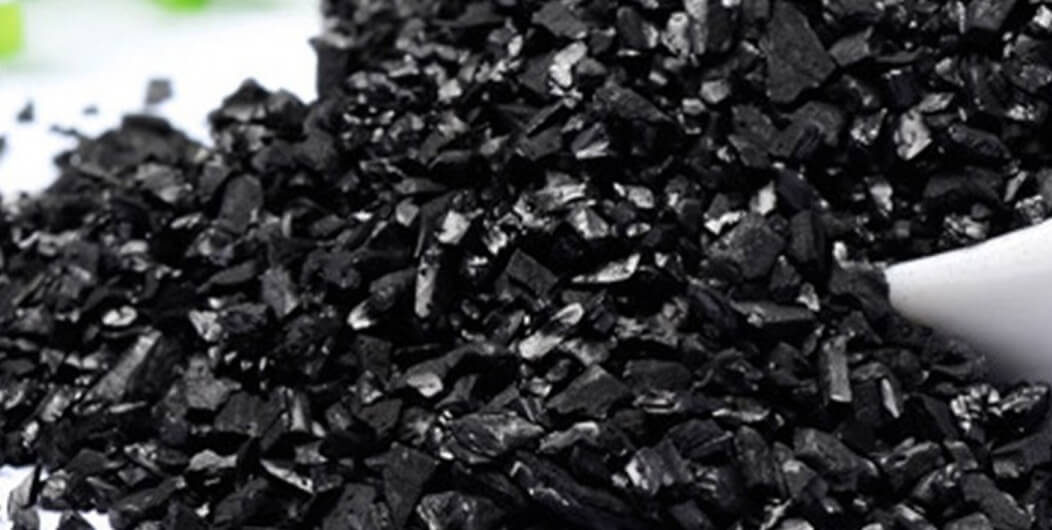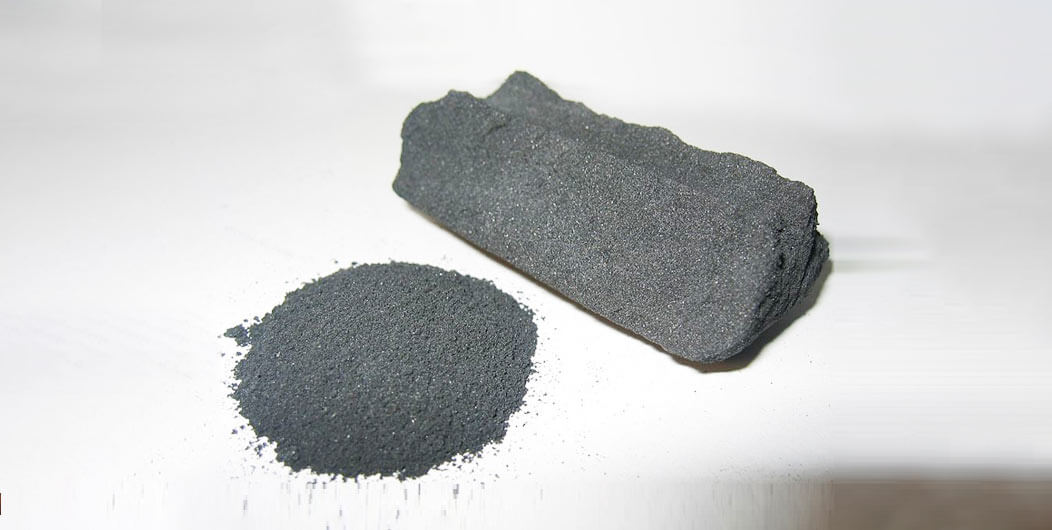
| Activated Carbon | Coconut Shell Charcoal |
The hard inner shell that houses the coconut kernel is yet another coconut-based ingredient that is used to manufacture a wide variety of products. It’s processed through “waste heat recovery” by Sri Lankan Coconut shell charcoal manufacturers to produce pure and clean charcoal. These are available in Charcoal Briquettes, widely used for outdoor and indoor barbeques and domestic heating purposes through local charcoal suppliers. It is also used as Activated Carbon in food processing, medicine manufacturing and various industrial purifications.

Activated carbon, sometimes called activated charcoal, is a unique adsorbent highly valued for the extremely porous structure that allows it to effectively capture and hold material. The networks of pores in activated carbons are channels created within a rigid skeleton of disordered layers of carbon atoms, linked together by chemical bonds, stacked unevenly, creating a highly porous structure of nooks, crannies, cracks and crevices between the carbon layers.
Activated carbons can be manufactured from coconut shell, peat, hard and softwood, lignite coal, bituminous coal, olive pits and various carbonaceous specialty materials. Chemical activation or high-temperature steam activation mechanisms are used in the production of activated carbons from these raw materials.
Depending on the source material, and the processing methods used to produce activated carbon, the physical and chemical properties of the end product can differ significantly. This produces a matrix of possibilities for variation in commercially produced carbons, with hundreds of varieties available. Because of this, commercially produced activated carbons are highly specialized to achieve the best results for a given application.
Widely used throughout many industries to filter out undesirable components from liquids or gases, activated carbon can be applied to numberless applications across a whole range of industries that require the removal of contaminants or undesirable materials. Sri Lanka is a leading manufacturer and supplier of activated carbon to the international markets.
Coconut shell activated carbon from Sri Lanka is mainly used in the following industries and applications:

Coconut shell charcoal is a valuable commodity produced from coconut shells. Sri Lanka is a leading producer and supplier of coconut shell charcoal.
Coconut Shell Charcoal is manufactured by carbonising raw coconut shells in a limited supply of air. Economical and eco-friendly, coconut shell charcoal is one of the cleanest and most favoured sources of developing activated carbon. Whereas other materials such as wood, coal, or other carbon-based sources are also suitable charcoal sources, the quality of coconut shell charcoal is far superior to others.
Coconut shell charcoal also has other uses such as:
Thanks to its fast burning and food-grade properties, coconut charcoal is widely used in barbecues as a superior alternative to regular charcoal. The food industry favors it on account of the pleasant aroma it gives out in the preparation of traditional food and barbecues.
Charcoal has long been used as a remedy for teeth and oral health. Just like charcoal soap, coconut shell charcoal serves as a natural teeth whitener and with amazing results.
Coconut charcoal is also used as feed for cattle, pigs, and poultry. Some studies have shown that animals fed with coconut charcoal give more milk. Likewise, for pigs and poultry, it is a suitable feed to increase weight and improve their health which ultimately leads to better meat production.
Coconut shell charcoal is widely used as a fuel substitute in domestic and industrial settings.
Coconut shell charcoal is used both as a deodorizer and decolorizer. The odorless and non-toxic characteristic qualities of coconut shell charcoal make it a widely used deodorizer and decolorizer in the air conditioning industry, cosmetic industry and water purification plants.
Coconut shell charcoal is manufactured in two different forms:
The charcoal prepared is then pulverized to form granules and the granules are then used for the processing of activated carbon.
The shell charcoal powder is the waste product obtained during the processing of charcoal. The powder is bound with the help of binding materials and moulded in the form of briquettes using a moulding machine.
Shell Charcoal is produced by burning the shell of fully matured coconuts with a limited supply of air so that they do not burn away to ash but are only carbonized. After the coconut shell is heated, it loses about 70% of its weight. Coconut shell charcoal is manufactured by using three methods called ‘drum method’, ‘pit method’, and ‘gasifier technology’, the last being the latest of the three manufacturing methods. Fully dried and matured coconut shells yield the best quality coconut shell charcoal.
Good coconut shell charcoal is uniformly dark and snaps with a clean shining fracture and produces a metallic sound when dropped on hard ground. Under-burnt shells do not emit a metallic sound and a clean fracture, while the overburnt ones are friable and the surface of the fracture sounds dull when dropped on hard ground and easily crumbles.
Sri Lanka is the fourth largest exporter of fresh and dried coconut products in the world with popular exports including desiccated coconut, brown fibre, virgin coconut oil, and coconut water which are available through a number of exporters.
Coconut & Coconut based Products
Info
Directory
eMARKETPLACE
Coconut Peat Products
Directory
eMARKETPLACE
Coconut Ekel products
Directory
eMARKETPLACE
Coconut Water Products
Directory
eMARKETPLACE
Coconut Kernel Products
Directory
eMARKETPLACE
Coconut Fiber Products
Directory
eMARKETPLACE
Coconut Shell Products
Directory
eMARKETPLACE